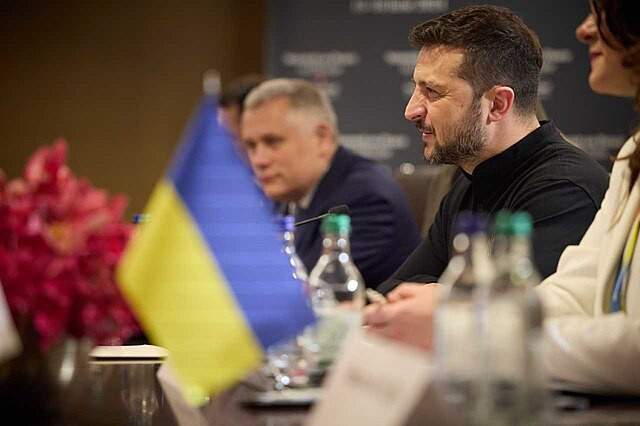Ukraine has launched its most significant foreign incursion into Russian territory since World War II, pushing deeper into the Kursk region and marking a dramatic escalation in the ongoing conflict between the two nations. Ukrainian President Volodymyr Zelenskyy announced on Wednesday that Ukrainian forces had advanced one to two kilometers further into Russian territory, seizing control of over 1,000 square kilometers, including the town of Sudzha.
The incursion, which began on August 6, has put Russian President Vladimir Putin on the defensive, creating what U.S. President Joe Biden described as a "real dilemma" for the Kremlin. The operation has upended the narrative of the war, shifting from Ukraine's earlier struggles to significant territorial gains within Russia's borders. The move has forced nearly 200,000 Russian civilians to evacuate the border regions, evoking memories of the historic Battle of Kursk during World War II.
The Ukrainian assault represents a dramatic shift in the war's momentum. For months, Russia had been making steady advances, capitalizing on the failure of Ukraine's 2023 counteroffensive. However, Ukraine's bold incursion into Kursk has put Moscow on the back foot, with intense battles raging across the region. Russian forces, despite deploying fresh reserves and air support, have struggled to expel the Ukrainian troops.
"This situation remains difficult," remarked Yuri Podolyaka, a pro-Russian military blogger. "The enemy still has the initiative and is slowly increasing its presence in the Kursk region." Despite Russia's attempts to stabilize the front, Zelenskyy has stated that Ukrainian forces are continuing to advance, with plans for further strategic moves in the coming days.
The incursion has also heightened tensions on the global stage, with Western allies closely monitoring the situation. President Biden confirmed that U.S. officials are in constant communication with Ukraine, though he emphasized that the U.S. had no prior knowledge of the operation and was not involved in its planning. However, Russian officials have insinuated that Ukraine's Western backers, particularly the United States, must have been aware of the assault.
The White House has refrained from commenting on these allegations, focusing instead on the broader implications of the conflict. "This has created a significant dilemma for Putin," Biden said, noting the strategic complications now facing the Russian leader. The Ukrainian incursion, according to U.S. officials, appears aimed at forcing Russia to divert troops from the Ukrainian frontlines to defend its own territory.
Putin, for his part, has vowed to respond forcefully to the Ukrainian advance, accusing Kyiv of indiscriminate attacks on Russian civilians and nuclear facilities. In a televised address, he condemned Ukraine's actions as a provocation orchestrated by "Western masters" to gain leverage in potential peace negotiations. However, he questioned the feasibility of talks under current conditions, given what he described as Ukraine's reckless tactics.
As the conflict intensifies, the economic repercussions are also beginning to surface. The Russian ruble has weakened significantly against the dollar, losing 8.5% of its value since the start of the Ukrainian offensive. This financial strain adds another layer of pressure on the Kremlin as it grapples with the implications of Ukraine's bold move.
The Ukrainian offensive has not been without risks. By focusing substantial military resources on the incursion into Russian territory, Kyiv may expose other parts of its frontlines to increased vulnerability. Russia still controls 18% of Ukrainian territory and has been making incremental gains in recent months. Former Ukrainian Defense Minister Andriy Zagorodnyuk acknowledged that the primary goal of the incursion might be to "distract [Russian] forces and its leadership's attention and resources" away from the Ukrainian front.
Meanwhile, the situation in Russia's border regions remains dire. In Belgorod, Governor Vyacheslav Gladkov declared a regionwide state of emergency in response to continued Ukrainian attacks. "The situation in the Belgorod region continues to be extremely difficult and tense," Gladkov said, noting that daily shelling by Ukrainian forces had resulted in civilian casualties and widespread destruction of property.






